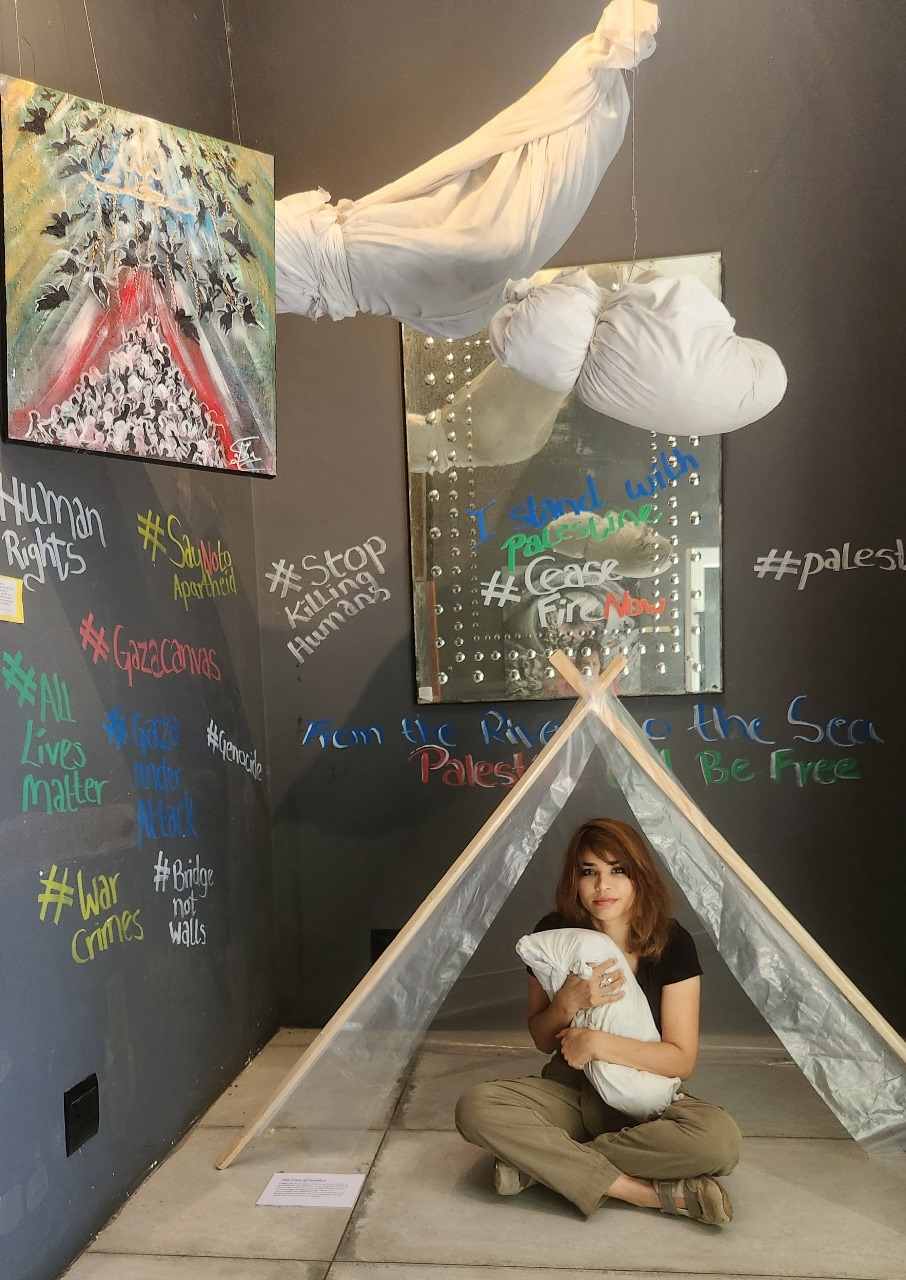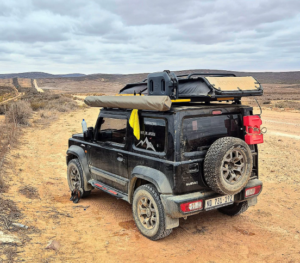
Her intention is not just to paint images but also to sculpt narratives that resonate with the core of human narratives and experiences, writes Nabeelah Shaikh.
Talented UK-Pakistani artist Saba Akhalwaya – now settled in Durban – has captivated audiences with her unique paintings and installations, one of which artistically captures images of shrouded babies killed in Gaza.
Scores of people appreciated her artistic work, which was exhibited at the Antique Cafe in Durban.
Titled “Reflections”, the immersive exhibition will be heading to Cape Town and Johannesburg next and is centred on various themes, one of them being identity, which Akhalwaya personally struggled with growing up.
“I was born in Pakistan and my parents migrated at a very young age. So, we defined ourselves as British Pakistani Muslims. We migrated to Manchester in the UK. My father was in politics, and the political climate in Pakistan only got worse, which forced my parents to choose to migrate. It was an overnight decision, and I just remember weeping about it and missing everything I left behind,” said Akhalwaya.
Her shift in language and culture became a contributing factor to her becoming an adaptive artist and using art as an expressive medium.
Her exhibition is a captivating exploration of contemporary issues, seamlessly blending traditional oil paintings with innovative installation art pieces to engage and challenge viewers.
Akhalwaya graduated from Oxford University in the UK and, at one point, worked at the National History Museum with the likes of British broadcaster, biologist, natural historian, and author David Attenborough.
She says her artwork today is focused on a reflective light on nature and echoes the war crimes that happened and the scarring it has left.
“It explores the relationship between hope and despair. The exhibition is more than just a display; it’s a conversation starter. It’s a dynamic space where I tell stories of humanity,” said Akhalwaya
She said her intention is not just to paint images on canvases but to sculpt narratives that resonate with the core of human narratives and experiences.
“So, in this exhibition, my inspiration came from what is happening in the world currently. I’m covering a lot to do with the human crisis and what’s ongoing. Crisis that involves the transformative realm of Artificial Intelligence and the intricacies of post-apartheid professions,” said Akhalwaya.
There is a part of the exhibition focused on South African history.
“I went into the Durban city centre, to places like Warwick Avenue to interview people from Zulus to others, to see the impact apartheid left on them and the impression it left on them,” said Akhalwaya.
Another part of her exhibition is focused on the ongoing war in Gaza. Akhalwaya’s Gaza installation focuses on an immersive experience and places the viewer inside a transparent refugee camp while holding a white pillow, which symbolizes the loss of children and lives in Gaza.
“The idea behind the Gaza installation is to get everyone to do their little bit. All the hashtags used as part of the installation are banned on social media. I had a big following on TikTok, and I’ve been banned for adding one pro-Palestinian hashtag. And this installation is created because networks like Meta cannot block imagery. So people can immerse themselves in this installation by putting themselves in there, taking pictures, and showing their support for Palestine,” said Akhalwaya.
She says when one puts their physical being inside an installation, it’s a different and unique experience.
Through different parts of the exhibition, her carefully crafted oil paintings showcase a mastery of technique and a keen eye for detail, while her installation art pieces amplify the impact, creating an immersive experience for the audience.
“I have weaved together traditional and contemporary elements, offering a dynamic and thought-provoking narrative. Each piece in the exhibition serves as a mirror to the world, prompting viewers to reflect on social, environmental, and cultural issues that demand our attention,” said Akhalwaya.
Akhalwaya says the reaction to the exhibition has been brilliant so far.
“I was overwhelmed. I feel like I achieved what I set out to do. I experienced a person entering the gallery and leaving with something etched into their minds when they leave.


